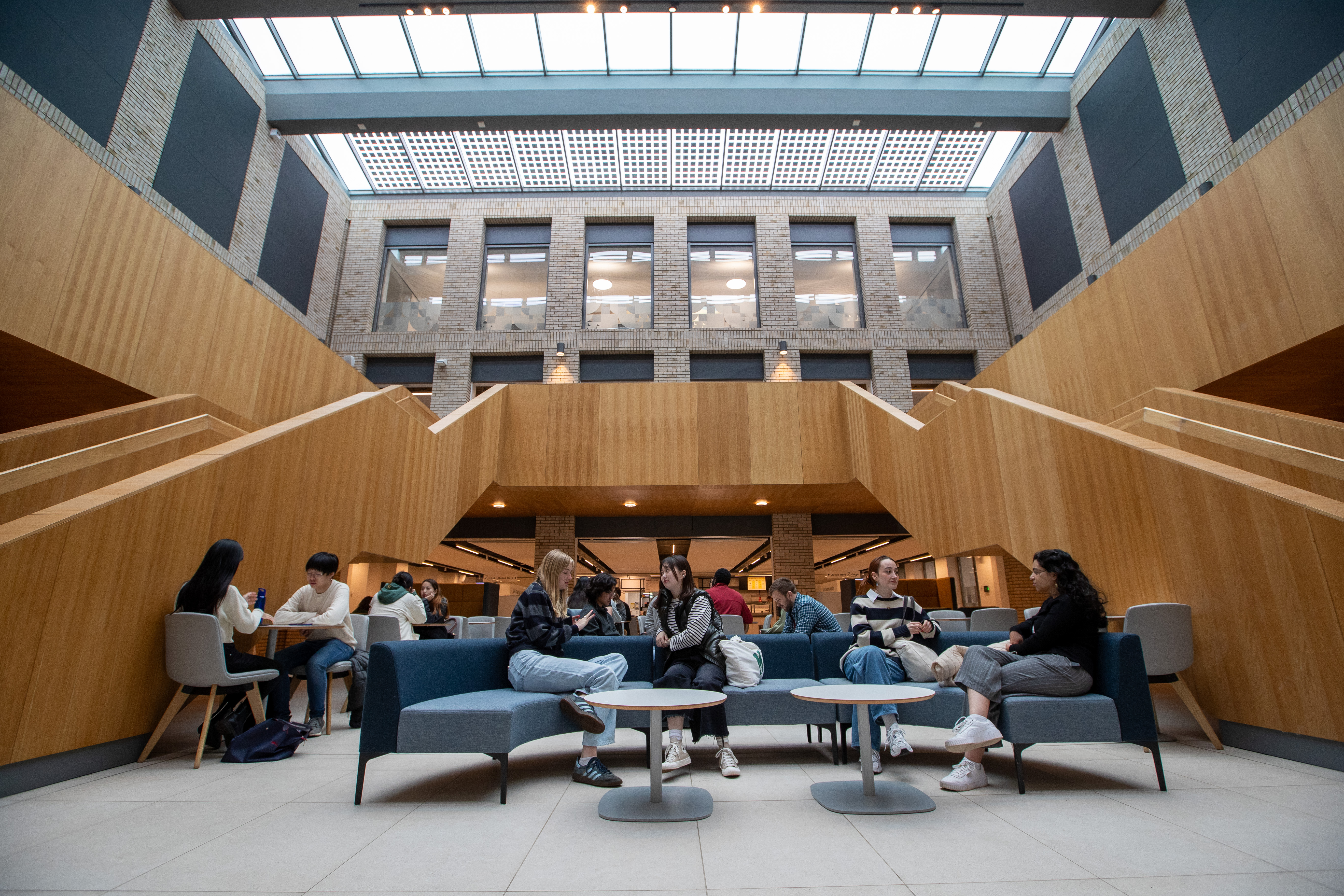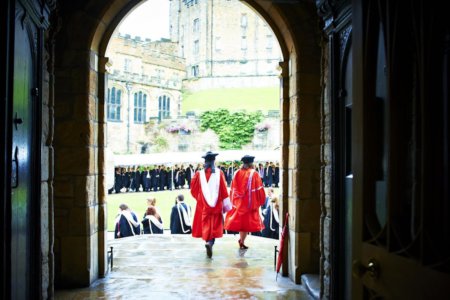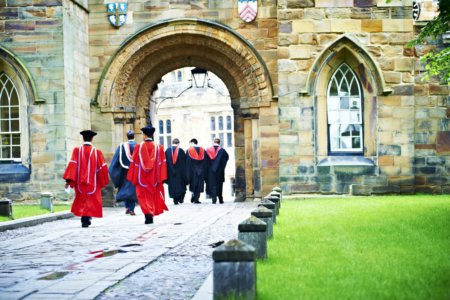Growing up in Arizona, Winona Sharpe dreamed of living and learning in a city steeped in centuries of history. She found it in Durham, England — the city’s beauty and history, with its sandstone buildings and over a thousand years of heritage, always leaves a lasting impression.
It’s also home to top 100 institutions like Durham University — the third oldest university in England, making it a paradise for history enthusiasts. It was the perfect place for Sharpe to pursue an MA in Medieval History.
Walking around campus, she often found herself in awe. Durham Cathedral, a 900-year-old Gothic masterpiece and the resting place of two medieval saints, stood nearby. Behind it loomed Durham Castle, a Norman fortress once home to the powerful Prince-Bishops who guarded England’s northern borders.
“Reading medieval chronicles and texts here being in the Northeast in Durham, where these stories were written just a few miles up the coast, like Holy Island, it just makes it so real,” Sharpe says. “It’s one of my favorite places on the planet.”
Who wouldn’t agree? Her classes are held in 17th and 18th-century townhouses, buildings that once thrived as coffee houses and lawyers’ offices. And these historic buildings are connected to modern facilities, including libraries, lecture rooms, and more. With this unique learning environment, it’s easy to understand why Durham University, founded in 1832, is ranked 42nd globally for History by the QS Subject Rankings 2024.

The Department of History benefits from its setting within a UNESCO World Heritage Site. Source: Durham University
The university uses world-leading research on the past to shape the future. This year, a faculty researcher found a 400-year-old legal case from the 16th century, where a powerful widow secured justice against a military captain for her villagers. Back in 2022, a team of researchers won a €2 million grant to investigate how Mediterranean communities from 1 to 1000 CE adapted to extreme climatic events like floods and volcanic eruptions. These discoveries highlight the university’s commitment to transformative research, which students experience firsthand through the newly launched Transformative Humanities framework and its six thematic pillars.
Research lies at the heart of Durham’s MA in History program. On this route, students put their specialized interests at the front and center of the curriculum. The program — completed over one year full-time or two years part-time — includes a research-focused course, up to 180 credits of electives, and culminates in a 15,000- to 20,000-word dissertation. Students work closely with the course director or dissertation mentor to shape their studies around their goals and ambitions.
Guiding them throughout are faculty who are not only expert educators but also trailblazing researchers. With specializations spanning African, East Asian, South Asian, Transnational, Medieval, and Modern History, as well as Visual and Material Culture, they help students develop into independent scholars while finding a home for their unique research interests.

Graduates from the MA in History enter academic careers in the arts and heritage sector, law, civil service, accountancy, teaching, the charities sector, and business. Source: Durham University
For Dr. Amanda Herbert, associate professor, her specialty lies in exploring the relationship between Britain and the Americas from 1450 to 1850 within the Atlantic World. At Durham, she’s surrounded by colleagues who share her passion for these histories.
“The history department here has one of the largest cohorts of Americans in the United Kingdom, so it’s very exciting to be in a place where there are so many other people working on histories that are similar to mine. In addition to that, we have an enormous number of Early Modernists,” says Dr. Herbert.
Indeed, Durham’s campus is a treasure trove for historians. As a UNESCO World Heritage site, it offers unparalleled access to historic objects and materials. The Durham Castle Museum is just one of several on-campus institutions, alongside the Oriental Museum, Museum of Archaeology, University Art Collection, and University Biosciences Collection. Together, Durham University’s museums and galleries hold over 100,000 objects available for research and exploration.
History students can also spend their free time sifting through historian authors and scholarly texts since Durham reigns supreme when it comes to library resources. There are four dedicated libraries in the city, with archives and special collections that span over 70,000 books that were published before 1850, maps, prints, photographs, and medieval manuscripts. These resources span far beyond local history, covering topics from post-war European federalism to colonial India and African histories.
If Durham sounds like the perfect place to pursue your passion, explore Durham University today.
Follow Durham University on Facebook, Instagram, LinkedIn, X, and YouTube.













